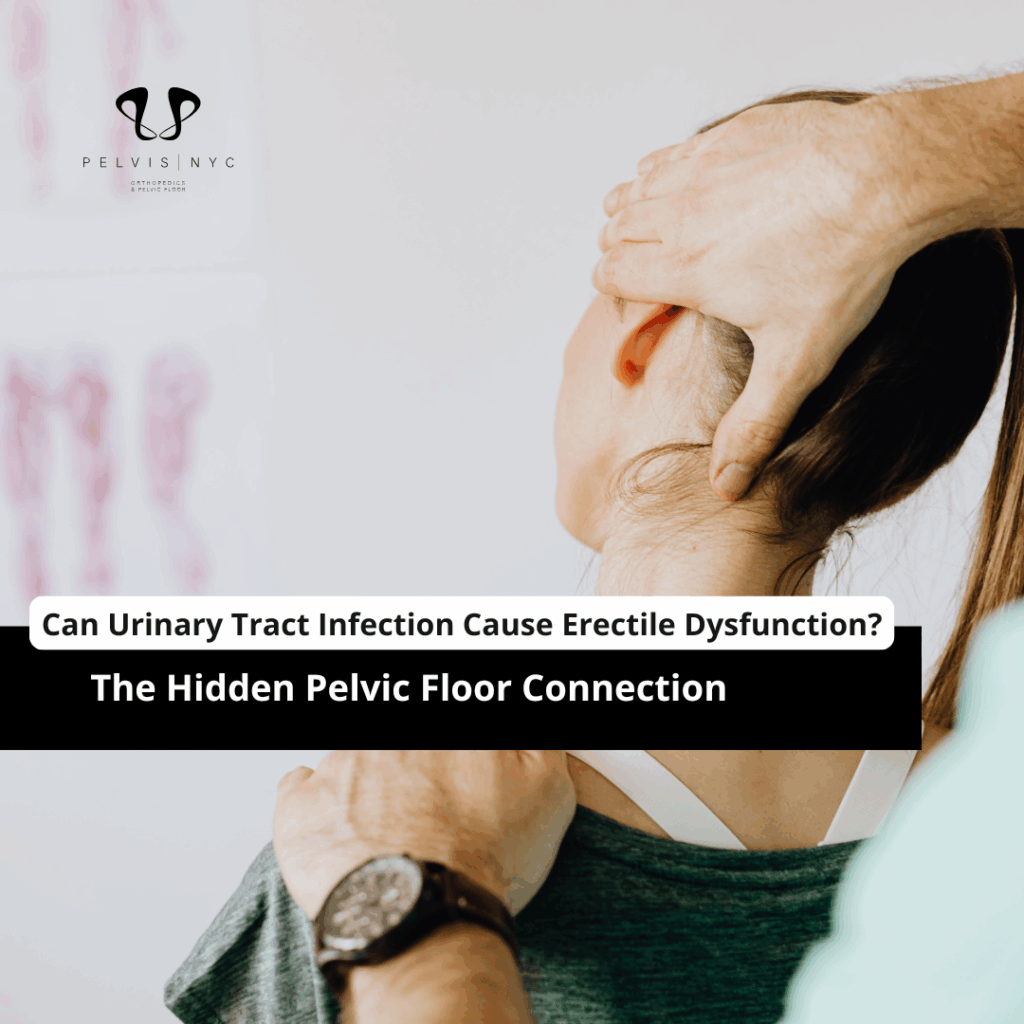If you’re seriously thinking about getting a vasectomy—or just plain curious—you’ve probably Googled this exact question: Do You Still Ejaculate After a Vasectomy?
The short answer is yes. You still ejaculate. But there’s more to it than that.
Let’s break it all down, from what happens during the procedure to how it affects your sex life, sperm, and long-term health.
Introduction to Birth Control
When it comes to preventing pregnancy, there are many birth control options available for both men and women. These range from daily pills and barrier methods to long-term solutions like intrauterine devices and surgical procedures. For men seeking a reliable and permanent form of birth control, a vasectomy stands out as one of the most effective forms available.
A vasectomy procedure works by cutting or blocking the vas deferens tubes—the tiny tubes that carry sperm from the testicles to the urethra. By interrupting this pathway, sperm can no longer mix with semen during ejaculation, effectively preventing pregnancy. The rest of the ejaculate remains unchanged, as only the sperm are blocked. This makes vasectomy a popular choice for men who are certain they do not want more children or wish to avoid the risks and responsibilities of other methods.
While the procedure is straightforward and typically performed under local anesthesia, it’s important to understand both the benefits and potential risks. Like any medical procedure, a vasectomy can have side effects, and it’s essential to discuss your overall health and family planning goals with your doctor before making a decision. By learning how the vas deferens and the tubes that carry sperm are involved, you can make an informed choice about whether this effective form of birth control is right for you.
What Is a Vasectomy?
A vasectomy is a minor surgical procedure that offers a permanent form of birth control for men. It works by cutting or blocking the vas deferens—the tubes that carry sperm from the testicles to the urethra. The vas deferens is the tube that carries sperm from the testicles to the urethra, and by cutting or sealing this tube, sperm can no longer mix with your semen when you ejaculate.
A qualified surgeon, such as a urologist, typically performs the vasectomy. But here’s what often gets left out of the conversation: a vasectomy doesn’t change how your body produces semen or testosterone, nor does it affect your ability to orgasm. In fact, many men say sex feels even better afterward because the stress of an unplanned pregnancy is off the table.
Does a Vasectomy Affect Ejaculation?
One of the most common questions men ask before getting a vasectomy is, “Do You Still Ejaculate After a Vasectomy?” The good news is that a vasectomy does not negatively affect ejaculation in terms of quantity, quality, or sensation.
Here’s why:
- Volume of Ejaculate: Only about 2 to 5 percent of your ejaculate is actually sperm. The majority of the fluid comes from the seminal vesicles and the prostate gland. Since a vasectomy blocks the sperm from entering the semen but does not affect these glands, the overall volume of your ejaculate remains virtually unchanged.
- Sensation and Orgasm: The nerves responsible for orgasm and ejaculation are not touched or altered during a vasectomy. This means that your ability to experience pleasure and orgasm stays exactly the same. Most men report no difference in orgasm intensity or sexual satisfaction after the procedure. However, ejaculating too soon after the procedure can cause discomfort or make the area feel swollen, so it is important to wait until you have healed before resuming sexual activity.
- Appearance of Semen: Your semen will look and feel the same as before. It maintains the usual texture, color, and consistency because sperm only make up a small portion of the ejaculate.
- Ejaculation Frequency: Your body will continue to produce sperm, but since they can’t travel through the vas deferens, they’re naturally reabsorbed. This does not impact how often you ejaculate or your sexual function.
In summary, on “Do You Still Ejaculate After a Vasectomy”, a vasectomy does not affect the act or sensation of ejaculation, only the presence of sperm in the semen. For many men, this is a relief because they can maintain their normal sexual routine with the added benefit of permanent contraception. During the first few ejaculations after a vasectomy, some men may experience mild discomfort, but this usually resolves quickly.
Do You Still Ejaculate After a Vasectomy?
Yes, you do. Most men notice no change in the amount, look, or feel of their semen. That’s because only a small fraction of semen—about 2 to 5 percent—is made up of sperm. The rest comes from fluids produced by the seminal vesicles and the prostate gland, which remain completely unaffected by the procedure.
So when you ejaculate after a vasectomy, the fluid looks and feels the same. The only difference is that it will no longer carry sperm.
What Happens to the Sperm?
After a vasectomy, your testicles still produce sperm just like before. But because the pathway is blocked, the sperm are absorbed by your body. The body absorbs these sperm cells naturally, breaking them down and recycling their components as part of the normal healing and reproductive process. The testicle continues to produce sperm even after the vasectomy, but since they cannot travel through the vas deferens, they are simply reabsorbed.
This doesn’t cause any pain or swelling in most men. It’s simply part of how your body maintains balance.
What to Expect From the Vasectomy Procedure
The vasectomy procedure itself is a quick and relatively painless outpatient procedure, often performed in a doctor’s office. It usually takes 15 to 30 minutes and is done under local anesthesia in a clinic or outpatient setting. Vasectomy is considered a quick procedure, typically completed in under an hour.
There are two main methods of this minor surgery:
- Traditional vasectomy – A small incision is made in the scrotum to access and cut the vas deferens.
- No-scalpel vasectomy – A tiny puncture is made in the skin, reducing recovery time and the risk of complications.
After the tubes are sealed or clipped, the incision is closed, often without the need for stitches.
How Long Until You’re Actually Sterile?
Many men are surprised to learn that they’re not sterile immediately after a vasectomy. It can take a few weeks to several months for all sperm to clear from the reproductive tract.
In the days after a vasectomy, patients should avoid sexual activity until cleared by their doctor.
That’s why doctors recommend waiting about 8 to 12 weeks and having at least 20 ejaculations before doing a semen analysis. This test checks to make sure your semen is sperm free.
Until then, you should continue using additional contraception until a semen analysis confirms the semen is sperm free.
The Role of the Semen Analysis
A post-vasectomy semen analysis is a critical step. It’s not enough to assume the procedure worked—you need proof.
During the test, you’ll provide a semen sample that’s examined under a microscope to detect any remaining sperm. A successful vasectomy is confirmed when the semen analysis shows no sperm present. If the sample is clear, you’re considered sterile. If sperm are still present, you’ll need to wait and test again.
Skipping this step is risky. There have been rare cases of unplanned pregnancies because men assumed they were infertile too soon.
Does a Vasectomy Affect Your Sex Life or Sex Drive?
Now that we have already answered the question “Do You Still Ejaculate After a Vasectomy?”, most people notice no difference in their sex drive or sexual satisfaction after a vasectomy. People worry about changes to their sex life, but these concerns are usually unfounded.
This is one of the biggest concerns men have—and the answer is reassuring.
Your sex drive stays the same. Your body still produces testosterone, which regulates libido, energy, and muscle mass. The procedure doesn’t interfere with your hormones or your ability to get and maintain an erection.
As for your sex life, many men report improvements. With no fear of pregnancy, intimacy can feel more relaxed and spontaneous. Orgasms remain just as strong, and ejaculation feels the same.
Common Concerns Men Have Before the Procedure
Let’s clear up some of the myths and fears around vasectomy:
1. Will it hurt? You may feel a slight pinch or tug during the procedure, but the pain is minimal. Most men say recovery feels like mild soreness or bruising.
2. Is it permanent? Yes, vasectomies should be considered permanent. While vasectomy reversal is possible, it is a more complex and costly procedure and is not always successful. Compared to tubal ligation, which is the permanent birth control option for women, vasectomy is less invasive and generally has a quicker recovery.
3. Will people be able to tell? Not at all. There’s no visible difference in how you look or perform sexually.
4. Does it increase the risk of cancer or disease? No credible evidence supports a link between vasectomy and serious health issues like prostate cancer or heart disease.
For more information about vasectomy, recovery, and sexual health, the Urology Care Foundation provides reliable guidance and patient education.
What’s the Recovery Time?
Recovery is usually quick. Most men are back to work in two to three days and can resume sexual activity within a week, depending on how they feel.
Before surgery, you may be asked to trim or shave the genital area. Use a disposable razor and avoid using an electric razor or hair removal products, as these can increase the risk of irritation or infection.
Tips for smooth recovery:
- Apply ice packs for the first 24 hours
- Avoid heavy lifting or vigorous activity for a few days
- Wear supportive underwear to reduce discomfort
- Take over-the-counter pain medication if needed
- Keep the genital area clean and dry to prevent infection
While complications are rare, contact your doctor if you experience severe pain, swelling, or signs of infection in the genital area.
Vasectomy is highly effective, with a long-term success rate of over 99% as a form of birth control.
Are There Any Risks?
Vasectomy is one of the safest surgical procedures available. But like any medical intervention, there are potential side effects:
- Minor bruising or swelling – Common and temporary
- Sperm granuloma – A small lump that forms when sperm leaking from the cut end of the vas deferens enters the surrounding tissue; usually resolves on its own
- Post-vasectomy pain syndrome (PVPS) – A rare condition affecting 1 to 2 percent of men, involving chronic testicular pain
These are not the norm, but they’re important to be aware of so you can make an informed decision.
Additional Considerations
After undergoing a vasectomy, there are a few important factors to keep in mind to ensure a smooth recovery and maintain your overall health. One potential risk is post-vasectomy pain syndrome, a rare but persistent pain in the testicles that can develop after the procedure. This discomfort may be caused by inflammation, infection, or a sperm granuloma—a small lump that can form if sperm leak from the cut end of the vas deferens. While these complications are uncommon, it’s crucial to follow your doctor’s post-procedure instructions and attend all recommended follow-up appointments to catch any issues early.
Another consideration is your sex life. Most men find that their sexual performance and satisfaction remain unchanged after a vasectomy, and some even report improvements due to reduced anxiety about unintended pregnancy. However, it’s normal to have concerns about how the procedure might affect your sexual activity. If you experience any persistent pain or changes in sexual function, don’t hesitate to reach out to your healthcare provider for support.
It’s also important to remember that while vasectomy is a highly effective form of birth control, it does not protect against sexually transmitted infections (STIs). If you or your partner is at risk for STIs, using condoms or other forms of protection is still necessary to safeguard your sexual health.
In summary, vasectomy is a safe and effective way to prevent pregnancy, but it’s essential to weigh the potential risks and benefits, stay informed about possible complications, and continue practicing safe sex to protect against other forms of infection.
Final Thoughts: Do You Still Ejaculate After a Vasectomy- What Every Man Needs to Know
If you’re considering a vasectomy, it’s natural to have questions and concerns. The good news is that it’s a safe, effective, and straightforward option for long-term birth control.
You’ll still ejaculate. Your sex life won’t suffer. Your hormones won’t change. The biggest difference is peace of mind.
And in the end, that can mean a more confident, enjoyable sex life—for you and your partner.
Still Feeling Discomfort After Your Vasectomy?
While most men recover quickly, a small percentage experience lingering discomfort or chronic pain after the procedure. If that sounds like you, knowing that help is available is important.
Pelvis NYC specializes in diagnosing and treating post-vasectomy pain, including conditions like:
- Post-Vasectomy Pain Syndrome (PVPS)
- Sperm granulomas
- Nerve sensitivity
- Pelvic floor dysfunction
Their team of experts uses a combination of advanced diagnostics, pelvic floor therapy, and targeted pain management to help men fully recover and regain quality of life.

👉 Visit Pelvis NYC to learn more about post-vasectomy discomfort and personalized treatment options.
Don’t ignore persistent pain, especially when effective, research-backed solutions are available. A quick consultation could be the first step toward lasting relief.




No comment yet, add your voice below!